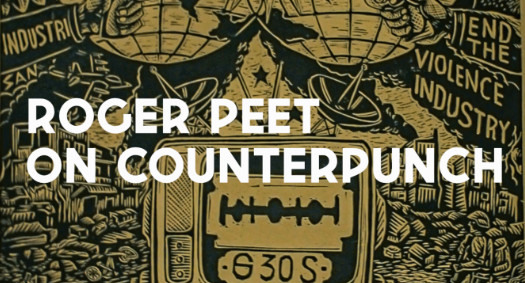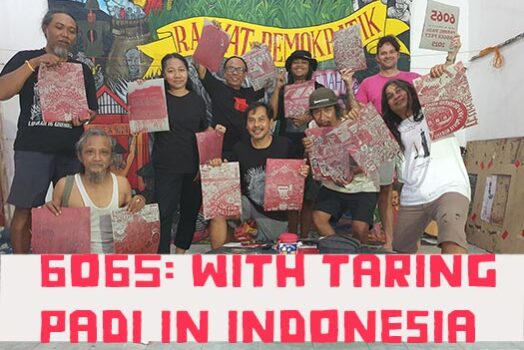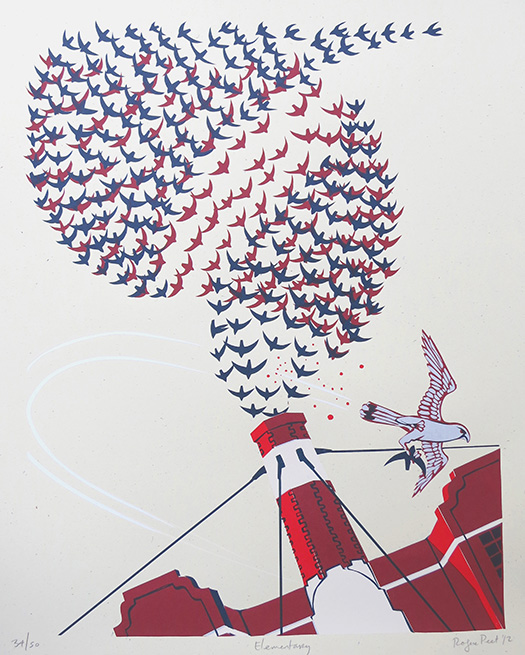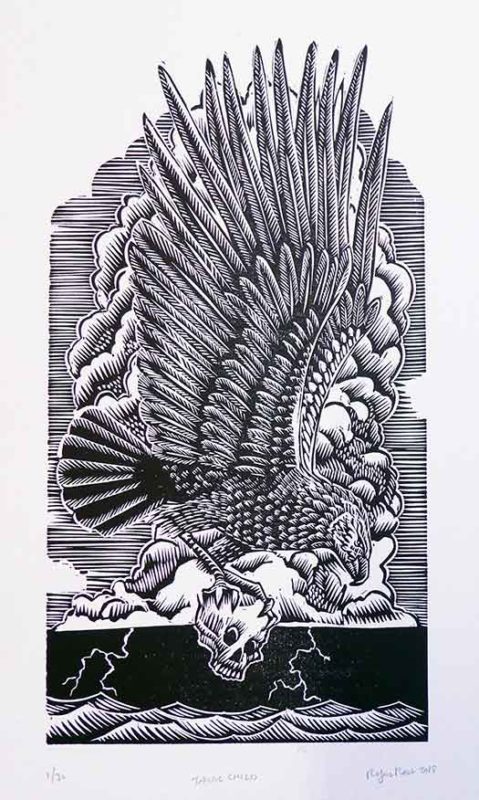
Hello, fellow apes. I’m here today to tell you about your relatives. I’m referring to the other three African species of Great Ape, namely the gorilla, the chimpanzee and the bonobo. They’re all going extinct. Isn’t that interesting? Would you like to know why? It’s unpleasant. Actually, I’ll go so far as to say that it is catastrophically fucked up in so many ways that a blog entry really does not suffice to catalog the horror. I’ll assist the presentation of this information by including some photographs by illustrious Swiss wildlife photographer Karl Ammann. These photographs have been widely seen in other parts of the world, not so much in the USA.
Karl is the protagonist of a book by Dale Peterson entitled Eating Apes, published by the University of California Press. Reading it is one of the most wrenching experiences possible, and has the potential to wreak havoc on the mind of anyone who is thinking critically about the state of the world. Its subject is bushmeat.
Bushmeat can be defined as wild animals hunted by humans for the purposes of eating, as opposed to those hunted for fashion, medicine, public safety, or fun. Eating Apes is principally concerned with the eating of apes. Our three closest animal relatives, residents of the tropical forests of sub-Saharan Africa, will soon be gone because of it.

Peterson describes how Karl, a hotelier by trade in his youth, became a wildlife photographer and how this shift of career brought him into contact with the bushmeat business. Travelling around the region of the Congo river basin, he found hunters and markets and traders doing a brisk business in cuts of ape meat, along with other rainforest meat products too numerous to be mentioned here. Although it’s true that the peoples of sub-Saharan Africa have been eating these animals for centuries, certain recent developments have led to a catastrophic upswing in the amount of meat being taken from the forest. It’s at this point that we all become complicit.
Logging interests, principally from Europe, open roads into the heart of the forest. Hunters follow the logging operations and penetrate deeply into the newly-accessible patches of jungle to provide meat for the hordes of migrant timber-cutters and machinery operators and their families. That’s one way. Another way involves mining.
The high tech industries on which so much of the world now relies for communication and business infrastructure receive certain vital elements from mines in the jungles of the two Congos. Preeminent among these elements is coltan, also known as columbite-tantalite, and its associated minerals like cassiterite, wolframite, etc. These minerals are used to manufacture capacitors for cellular phones, personal computers, and video game systems, among other things. Miners clear the forest and hack at the earth, living terrible lives of squalor and poverty and violence. Their takes are routinely hijacked by groups of armed men from the various militias and armies that infest the region. In fact, one could make a pretty good case that the recent African World War that killed hundreds of thousands of people and involved the militaries of at least ten nations, was driven in part by the desire to control the flow of these minerals and the giant heaps of profit that can be wrung from them. The mineral supply flowing from the region has become so integral to aspects of our global economy that the release of the Playstation 2 in the 90’s was delayed because of a crunch in the tantalum supply.
Of course, the miners need to eat. And they like to eat meat when they can. Bushmeat hunters are only too willing to provide. The miners, loggers, hunters and traders and the international interests involved are engaged in an industrial process of exploitation of the resources of a vast forest. And not just any forest. A number of the areas being exploited are national parks. Kahuzi-Biega National Park in eastern Congo was invaded by 10-15,000 miners who promptly ate their way through all the large animals in the park, and have now started in on the smaller ones. Not much is left. A couple monkeys, small antelopes, some birds. All the big meat is gone.

Eating Apes focusses a large chapter, called “Denial”, on the failure of international conservation agencies to deal effectively with this problem. The agencies, Peterson says, have shot themselves in the foot by deciding to deal with conservation issues on an economic basis, under the rubric of the concept of “sustainable development”.
Just for the record, “sustainable development” is an oxymoron. Especially when referring to an African forest where 300-1000 year old trees are being cut in 30 year cycles. Conservation groups perform cost-benefit analyses to determine appropriate rates of bushmeat “off-take” and come up with a figure of sustainability at one person per square kilometer. Unfortunately, actual population densities in the affected regions are at 25 persons per square kilometer and they are doubling every two decades or so.
The point of “sustainable development” is to provide infrastructure, resources, a tax base for nations that lack such things, while at the same time inhibiting the total depletion of all living things and the land beneath them. It’s common to refer to the forest and its inhabitants as the “resources” that a nation possesses. I beg to disagree. Defining these things as resources is a central problem in the way we late-capitalist humans look at the world. Are forests and animals merely chips to be raked up and turned in to the payout window?
Biologist John Oates has this to say: “The international conservation establishment’s embrace of development and deliberate decision to promote conservation on economic rather than ethical/aesthetic grounds has been deeply corrupting.” Really! Amazing. So you’re saying that having as your base motivation the desire to profit might cause some problems to arise with your stated goal of preventing the hacking apart of every living thing that isn’t human on earth? Huh.
One of the most amazing stories in this book is the tale of Karl’s attempt to concretely inhibit the ability of bushmeat hunters to hunt gorillas. Let me try to sum it up. Gorilla hunters were using a shotgun cartridge with large caliber shot to kill large adult male silverback gorillas. Karl tried to have the French company that manufactured the cartridges stop production. Karl then discovered that with the large caliber cartridge unavailable, the hunters switched to the next largest which, while useless for bringing down the silverbacks, was ideal for killing the females. Females, you know, the ones that actually have the babies. At the same time other companies were circling like sharks looking to fill the gap. What a situation! Karl backed off on his project.
It’s stories like this that illustrate the bolus of paradoxes at the heart of this issue. Insisting that apes should not be allowed to go extinct as a result of human appetites is usually done by people who aren’t hungry for protein. That is, by people who can afford mahogany desks for their corporate offices, or at least a computer to send out an e-mail blast to the anti-bushmeat listserv to stage a protest when the premier of Cameroon is in town. Why shouldn’t the African poor be allowed to eat and industrially exploit their wildlife to extinction? Europeans and North Americans and Asians have already done so, to their great developmental benefit. Isn’t development necessary for the alleviation of poverty? Shouldn’t Africans have the same right to earn money and buy playstations and cellphones that Americans have? Isn’t it racist to suggest otherwise? Who are you to criticise the traditional hunting practises of indigenous people?
Of course, the Africans generally aren’t profiting, unless they have guns. The money flows to where it has always flowed, since the Belgians and the French and the British ruled Sub-Saharan Africa. It flows to the people who already have it. Money is magnetic in that way. Very, very little remains behind in the countries from which the “resources” are extracted, except for in the pockets of the people who have the power. The people doing the shit work can be expected to be paid in kind: in shit.
Fortunately, there will be meat for them to eat. Why? Because NATURE BATS LAST.
Arguments abound. Barbs fly. And the apes continue to die.
Peterson says,” Why is it true that most ordinary Americans appear unaware of the eating apes/ bushmeat crisis? Part of the answer could be, quite simply, that news about the natural world is normally regarded as secondary to news about the human condition.” The second half of that statement should be written in the sky in letters of fire, because it is the reason why the earth is being killed. Because Humans Really Don’t Care About Anything But Ourselves.
Also, noone cares about what happens in Africa. Africa might as well be Pluto.
People don’t like to look at these pictures. National Geographic turned Karl down because his images were “too disturbing”. It raises all sorts of bugbears in the brain, looking at these pictures. Apes look like us. The eating of them smacks of cannibalism. Cannibalism is an uncomfortable thing to accuse poor Africans of. The mind reels with, pardon my phrasing, the horror.
I would like to say this. Apes ARE us. As is the rest of the natural world. We are a part of it, although we like to pretend that we are not. It is the humans that are the problem. Repeat that. It is the humans that are the problem. As our populations explode and tens of thousands of species are herded into the extinction chute, we must look at ourselves, as a species, and truly digest (sorry) what we are doing.

It is the fact that we cook our food.
I have a hard time with politics these days. Nothing seems to matter but the Earth’s evisceration. What is to be done?








Poor apes. Cant they do something else besides kill them?
I feel sad about this issue. This is not right.Why do they have to kill apes? Those cruel people should get the punishment that they deserve. Please stop killing animals.
Dear Readers,
I am not for killing apes. But I’ve met people who have traveled to these places, and the report is that the locals think of apes like you in the united states might think of rats or mice.
Telling them to protect the apes is like them coming here and saying, no no don’t kill those rats what is wrong with you.
That being said we should consider it when we are trying to develop strategies for protecting them from extinction.